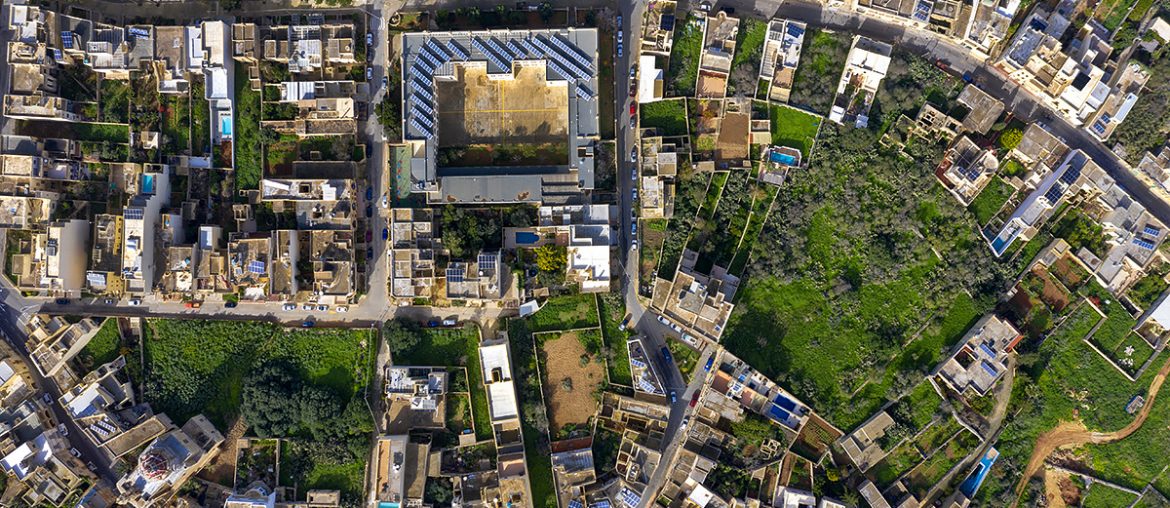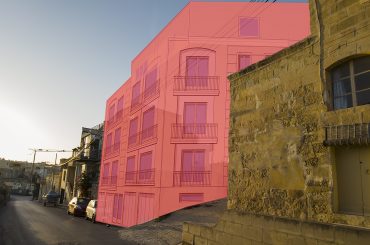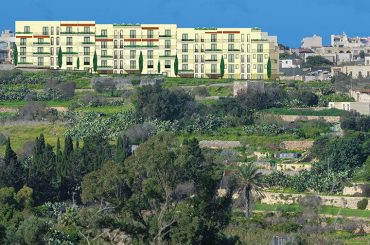In a move that seems at odds with fundamental property rights, the government has this morning revoked land registrations over a large area in Nadur, including the registration of a medieval foundation that has caused agony and fury over the past two years.
The government's legal notice may be susceptible to a challenge on constitutional grounds
Although the government revoked registrations over a large area, affecting registrations of many people, the prompt for today’s legal notice as well as the earlier law that laid the ground for the revocations was the ownership registration of the Beneficcju ta Sant Antonio delli Navarra. This foundation – set up to raise money for pious deeds in 1675; now a running story known as the Gozo land grab – had registered ownership of an area of around four football pitches in size in Nadur on which around four dozen houses sit.

Legal Notice 73 of 2022 made use of powers granted to the Minister for Home Affairs, National Security and Law Enforcement in a law enacted on 6 July 2021, enabling the minister to revoke any decision to open new areas for registration.
That power has been used today in Legal Notice 73 of 2022 for the first time. The Home Affairs Minister, Byron Camilleri, revoked an entire area of registration that had been declared a registration area in an earlier legal notice on 1 July 2019 by another minister, Ian Borg, who was at the time responsible for the Land Registration Agency. In that legal notice, Borg had opened eight areas for registration – five in Gozo, three in Malta. Of the five areas in Gozo, three were in Nadur and two in Ghajnsielem.
The latest legal notice has now revoked one of those three registration areas in Nadur, the one on which the land registered by the medieval foundation sits. The legal notice revoked all registrations on the area, as well as any so-called cautions put in by residents who challenged the medieval foundation’s registration.
Revocations come after two years of twists
The publication of Legal Notice 73 of 2022 comes one day shy of the two-year anniversary of one of the medieval foundation’s registrations of ownership. The foundation registered two parcels in two separate applications, the first filed on 21 January 2020 and the second on 12 February 2020.
The initial registrations had caused panic and outrage in Gozo. Some of the people whose houses sit on registered land became sick with worry of losing their houses.

The applications for registration were approved by then Assistant Land Registrar Marlin Vella, who has since resigned from the Land Registry.
At one point the government examined whether it could revoke the registrations, but an assessment by a lawyer within the State Advocate’s office put a dampener on that process. The assessment was based on the premise that the boundaries of the area registered were not clear, and that these were then made good after the applicant submitted additional documents.
Yet this premise failed to consider something rather fundamental: the Assistant Land Registrar had approved the applications on basis of a document that did not even mention the area in the application, called Ic-Cnus tan-Nadur.
Shortly afterwards, in October of 2020, Junior Minister Alex Muscat said in the parliament that affected residents ought to file ‘cautions’ to challenge the registrations. Many residents eventually did so, and now Legal Notice 73 of 2022 has revoked all registrations and cautions. In effect it means that the area is no longer a registration area, and no one who has land on that area can apply to register title of that land.

Legal notice may breach fundamental human rights
Legal research suggests that the legal notice revoking the registrations may breach an aspect of property rights enshrined in the Maltese Constitution as well as the Article 1 of the Protocol of the European Convention on Human Rights and, separately, Article 17 of the EU Charter of Fundamental Rights.
Property rights have given rise to the concept of “legitimate expectations”, which are a kind of rights that are acquired by “a legal provision or legal act” (in the caselaw of the European Court of Human Rights) or “rights with an asset value creating, under the legal system, an established legal position” (in that of the European Court of Justice).
Since the opening of area for registrations in 2019 was made via a legal notice, that may form the starting point for the legal provision or act, or the established legal position, referred to by Europe’s highest human rights court and the EU’s court, both of which have jurisdiction over Malta’s courts.
This legal position was further strengthened when people applied to register properties and these were approved by the Land Registration Agency. Although the ownership registration is preliminary for the first ten years – it only becomes guaranteed after ten years – the preliminary title is still a title, based on the legal premise that it would become guaranteed if no one challenges the registration within the initial 10-year period.
That means that it may still constitute a premised or established legal position in the context of pronouncements by Europe Court of Human Rights (ECHR). It is unclear, and debatable, whether it does make any difference that Legal Notice 73 of 2022 only revoked registrations made within the initial 10-year period. (The area had only been opened for registration in 2019, so none of the registrations are older than ten years in any case.)
This would mean that anyone who registered land ownership had acquired the legitimate expectation that the preliminary title would eventually become a guaranteed title.
The legal notice that revoked the registrations, or the registration area, also clashes with the principle of legal certainty. The Minister did not provide a reason for the revocation and, although a government does not necessarily have to give a reason to promulgate a law, particularly a legal notice, the lack of reason does add another element of the range of grievances or aggravations that could be invoked in a potential constitutional lawsuit.
There are people who spent considerable amounts of money to pay an architect and a notary to prepare their paperwork for registration. Yet they became collateral damage of a legal notice whose target is just one of the registrations, that of the medieval foundation.
The other question here is whether the government had other options, and why not opt for the other options.
All of this makes Legal Notice 73 of 2022 susceptible to challenge in the Maltese constitutional courts and, if it leads to that, in the EU’s European Court of Justice under the so-called ‘preliminary reference’ mechanism, or else in the European Court of Human Rights.





